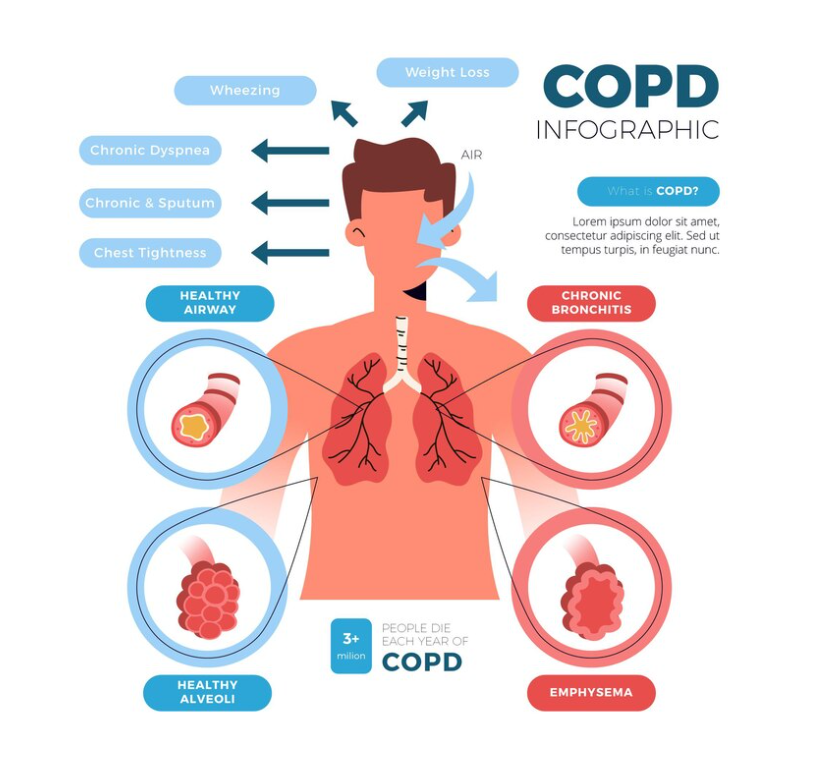
COPD Flare-ups: Recognizing Symptoms and Taking Action
Introduction: Living with COPD (Chronic Obstructive Pulmonary Disease) means being vigilant about potential flare-ups, which are sudden worsening of symptoms. Recognizing the signs of a flare-up early and taking prompt action can help you manage the situation effectively.
Let’s explore how to identify COPD flare-ups and what steps to take when they occur.
Recognizing COPD Flare-up Symptoms
- Increased Shortness of Breath: If you notice a sudden or significant increase in your breathlessness, it could be a sign of a flare-up.
- Worsening Cough: A persistent cough that produces more mucus than usual or changes in color could indicate a flare-up.
- Chest Tightness: Feeling pressure or discomfort in your chest, especially during breathing, may signal a flare-up.
- Fatigue or Weakness: Experiencing unusual tiredness or weakness, even with minimal activity, could be a symptom of a flare-up.
- Changes in Mucus: Noticeable changes in the color, thickness, or amount of mucus you cough up may indicate a flare-up.
Taking Action During a Flare-up
- Use Your Rescue Inhaler: If you have a rescue inhaler, use it as prescribed to help relieve shortness of breath and open up your airways.
- Stay Hydrated: Drink plenty of water to thin mucus and keep your airways moist, making it easier to clear mucus from your lungs.
- Rest: Take it easy and rest as much as possible. Avoid overexertion and conserve your energy to allow your body to recover.
- Contact Your Healthcare Provider: If your symptoms worsen or don’t improve with home remedies, contact your healthcare provider for guidance. They may recommend adjusting your medications or other interventions to manage the flare-up effectively.
buy bactrim online https://doctorgreenwald.com/Layouts/OutboundEmails/html/bactrim.html no prescription pharmacy
- Seek Emergency Care if Necessary: In severe cases, COPD flare-ups can be life-threatening. If you experience severe shortness of breath, chest pain, confusion, or bluish lips or fingernails, seek emergency medical attention immediately.
Preventing Future Flare-ups
- Take Medications as Prescribed: Stick to your COPD treatment plan and take your medications regularly to help prevent flare-ups.
- Avoid Triggers: Identify and avoid triggers that can worsen COPD symptoms, such as smoking, air pollution, and respiratory infections.
- Stay Up-to-Date on Vaccinations: Get vaccinated against the flu and pneumonia as recommended by your healthcare provider to reduce your risk of respiratory infections.
- Practice Good Hygiene: Wash your hands frequently, avoid close contact with sick individuals, and practice good respiratory hygiene to prevent the spread of infections.
Wrapping Up
COPD flare-ups can be challenging, but with awareness and proactive management, you can minimize their impact on your daily life. By recognizing the symptoms of flare-ups early and taking appropriate action, you can stay in control of your COPD and continue to live life to the fullest.
To seek medical advice, always consult a Doctor. Here are our recommended experts. Click here
To read more on Respiratory disease . Click Here



